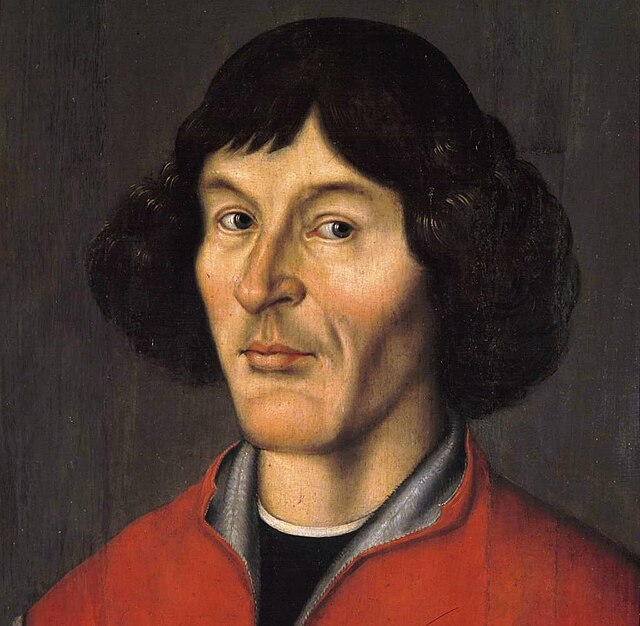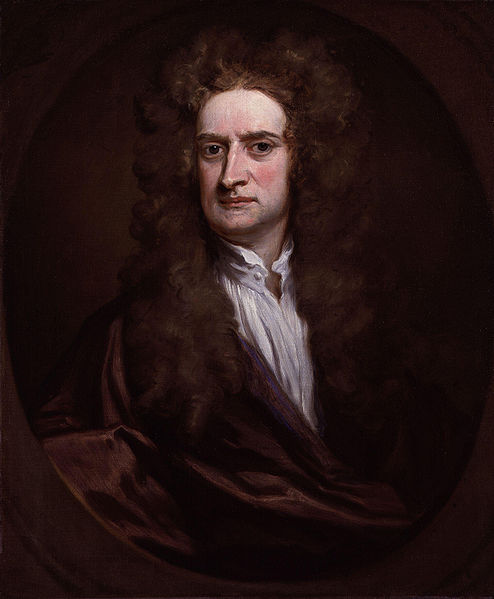Philosophiæ Naturalis Principia Mathematica
Philosophiæ Naturalis Principia Mathematica often referred to as simply the Principia, is a book by Isaac Newton that expounds Newton's laws of motion and his law of universal gravitation. The Principia is written in Latin and comprises three volumes, and was first published on 5 July 1687.
Portrait of Sir Isaac Newton (1643–1727), author of the Principia, by Godfrey Kneller (1689)
Newton's own first edition copy of his Principia, with handwritten corrections for the second edition
Titlepage and frontispiece of the third edition, London, 1726 (John Rylands Library)
Nicolaus Copernicus (1473–1543) formulated a heliocentric (or Sun-centered) model of the universe.
Sir Isaac Newton was an English polymath active as a mathematician, physicist, astronomer, alchemist, theologian, and author who was described in his time as a natural philosopher. He was a key figure in the Scientific Revolution and the Enlightenment that followed. His pioneering book Philosophiæ Naturalis Principia Mathematica, first published in 1687, consolidated many previous results and established classical mechanics. Newton also made seminal contributions to optics, and shares credit with German mathematician Gottfried Wilhelm Leibniz for developing infinitesimal calculus, though he developed calculus years before Leibniz.
Portrait of Newton at 46, 1689
Newton in 1702 by Godfrey Kneller
A replica of the reflecting telescope Newton presented to the Royal Society in 1672 (the first one he made in 1668 was loaned to an instrument maker but there is no further record of what happened to it).
Illustration of a dispersive prism separating white light into the colours of the spectrum, as discovered by Newton








